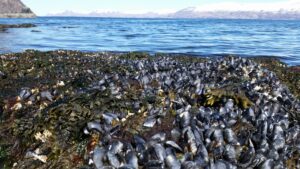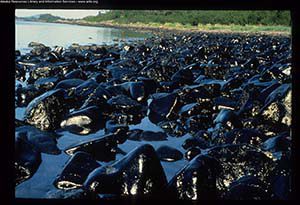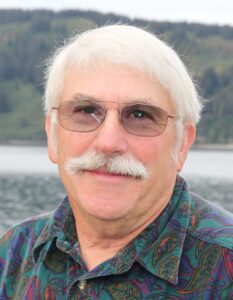![]()
 In April 2023, the Council released an assessment of risks and safety culture at the Valdez Marine Terminal. This report was initiated in June 2022, in response to safety concerns brought to Council staff by current and former Alyeska employees.
In April 2023, the Council released an assessment of risks and safety culture at the Valdez Marine Terminal. This report was initiated in June 2022, in response to safety concerns brought to Council staff by current and former Alyeska employees.
The Council worked with Billie Pirner Garde, a national expert on safety culture for work environments in energy industries. Garde previously worked as a consultant for both Alyeska and BP on numerous issues such as open work environments, safety cultures, and employee concerns programs.
Garde interviewed the concerned individuals, allowing them to remain anonymous. They reported inadequate staffing, equipment, and safety and reporting systems. Pressure to reduce budgets was a common theme.
One person quoted in the report noted, “we are as safe as the budget allows.”
According to the interviews, the availability of resources, quality and audit functions, maintenance and system upgrades, and operational integrity and compliance have all suffered significantly under recent corporate management.
“Virtually every serious accident investigation confirms that the tension between cost on the one hand, and compliance and safety on the other hand, contributed to the event.”
– Billie Pirner Garde
Alyeska employees
Garde notes in the report that the interviewees all cared deeply about the safe operation of the terminal, and the safety of their colleagues, the community, and Prince William Sound. She credits the integrity, knowledge, and skill of the Alyeska workforce for holding together an aging infrastructure.
Regulatory oversight diminished
Government budget pressures have also contributed to the problems. Over the past several years, the Council has voiced concerns about cuts and reductions in staffing at oversight agencies, including the Bureau of Land Management and the Alaska Department of Environmental Conservation.
“The consequences of reduced oversight have, generally, never been favorable for the Alaska public and its environment,” Garde notes in the report.
Report recommendations
At a special meeting of the Council’s Board of Directors in April, the Council endorsed all recommendations in the report, including that Congress initiate a Government Accountability Office audit to determine the adequacy of the present regulatory oversight of terminal operations by federal and state agencies.
Other recommendations include:
- The State of Alaska initiate an assessment, or audit, of the present regulatory oversight of terminal operations by state agencies;
- The federal Occupational Safety and Health Administration conduct or commission a full independent audit of applicable terminal systems for compliance with Process Safety Management;
- Alyeska and the Trans Alaska Pipeline System owners commission an independent full assessment of the company’s safety management systems and determine a specific timeline for actual completion of the necessary changes to ensure safe operations; that they commission an immediate independent audit to be conducted of all deferred maintenance at the terminal; and provide mandatory training for all supervisory and management personnel on their duty to promote a strong safety culture, uphold a compliance culture, and not tolerate harassment, intimidation, retaliation, or discrimination.
Response from Alyeska
The Council has been encouraged by Alyeska’s response.
John Kurz, the new president of Alyeska, joined the Council’s Board of Directors at the May meeting. He told the Board that he and Alyeska’s executive team are taking the report seriously. He noted that they have formed a team to look into issues identified to determine what is going well, what areas they may be falling short, and what actions they are going to take to address them.
“There is nothing more important than life and family,” Kurz said, when explaining his views on safety in the workplace. “Because I care about everyone that works for us, I also want everyone to experience everything life has to offer, and therefore we will be injury free.”
Schantz says she knows that the staff at Alyeska and the regulatory agencies are dedicated to operating as safely as possible with the resources they are given. “The Council agrees with the sentiment expressed by Alyeska executives that this report provides an opportunity for improvement,” she said. “We stand ready to support Alyeska, and state and federal regulatory agencies, in our role as an advisor.”
“The greatest successes result from citizens, industry, and regulators working together to maintain and improve safeguards to prevent and prepare for future oil spills,” Schantz added.
The full report, including more detail on the resulting recommendations, is available on the Council’s website:



 In April 2023, the Council released an assessment of risks and safety culture at the Valdez Marine Terminal. This report was initiated in June 2022, in response to safety concerns brought to Council staff by current and former Alyeska employees.
In April 2023, the Council released an assessment of risks and safety culture at the Valdez Marine Terminal. This report was initiated in June 2022, in response to safety concerns brought to Council staff by current and former Alyeska employees.